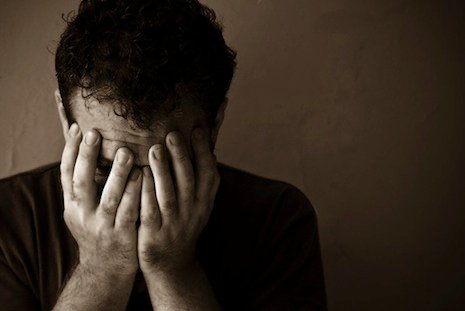WHAT IS UP #1 | The Student's Secrets (Revealed)
Let's take a look back again at the first case for the "What Is Up" series.
JC is a 21-year-old male student who was rushed to the emergency room after attempting to stab his father with a machete. He wanted to do it for fear that his father was an escaped convict who planned to kill the whole family on his debut which was just 5 days away.
JC was a candidate for inclusion to the list of those graduating with honors until six months ago when he started engaging in illicit drug use with friends bi-weekly. At this point in time, he felt guilty but seemed unable to stop himself from doing it. He lost his interest in games he used to love like Warcraft and Minecraft. Every time he’d wake up, he felt having his energy drained and lost to a point that he’d rather stay in bed than attend classes, another reason of which was that he’s unable to understand the lessons and gets left behind sometimes.
Three months ago, he became increasingly alert and suspicious of his surroundings. He felt that he was the talk of the town and that people dislike him. Unable to cope, he eventually left school. In most cases, he locked himself inside his room & didn't bother of his family’s attempts to reach out to him. There were times he wouldn't eat for fear that his father was putting poison in his food. Most of the time, he'd remain awake at night and hear voices saying that his father is almost done with his plans.
Hailing from a poor family, JC's childhood revolved around his aunt, maternal grandmother, and male cousin who were rude and unforgiving caregivers. Every time he'd speak out his mind, his complaints were met with strong criticism, sometimes punishment. Hence, he kept his feelings to himself.
His mother, diagnosed with depression, seemed emotionally detached and anxious. His father left them for another woman, but came back for his 21st birthday. JC wanted to meet his caregivers' expectations; however, no matter how hard he tried he felt no love and was forgotten. He grew up as a loner, not capable of building friendships. Having no one to talk to, he was often bullied in class until the age of 14.
What was alarming? What went wrong?
JC attempted to kill his father whom he thought has plans to kill him and his family. In this situation, he is capable of causing harm to himself and to others. He had delusions (fixed beliefs or impressions contrary to what is generally accepted as real or rational), auditory hallucinations (hearing voices others don’t hear), and paranoia which may point to a case of schizophrenia.

Image Courtesy: Shutterstock
Taking into consideration maternal depression, JC's loss of motivation, loss of interest, loss of appetite (probe for possible weight loss), poor impulse control, social withdrawal, complete isolation, fatigue (loss of energy), insomnia (inability to sleep) and feelings of guilt are indicative of depression.
What factors led to his illnesses?
Psychiatric illnesses, just like other diseases, are multifactorial in nature. It means a lot of things—biological, psychological, sociocultural—have piled up and contributed to who JC became now.
It pays to take a closer look at the family dynamics. He lacked trust in people because his environment (being with harsh and rude people) was not supportive of the development of trust. That’s why he kept almost everything to himself. He also had feelings of worthlessness and being unloved due to the lack of a role model, with his father being away for the most parts of his childhood and his mother being emotionally incapable. He stayed distant to people because even in school, he was being bullied.
This is why strong, functional relationships matter. All of these factors could have been overcome with an intact emotional and psychological support. Families and friends are our allies in helping people with mental illnesses.
What can we do?
Of course, JC's physician will prescribe the appropriate anti-psychotics and antidepressants. In our case, however, what did we realize from JC's story?
Bear in mind that we do not know what people go through every day. Some of us would put on a happy face, even though they're dying inside or feeling down in most days of the week, for they don't want to cause inconvenience to anyone. Depression and schizophrenia--these were JC's secrets, oftentimes seen as a stigma in a pretty much judgmental society. And there's so much we can do!
And it starts with being kind and thoughtful to others. Share our happiness with others and extend our realm of understanding that different types of personalities exist. Let’s learn to trust others and take good care of the trust given to us.
Let our loved ones know they’re worthy of love to prop up their self-esteem. Appreciate what others do for us because it feeds back not just on them, but on us too. It makes us feel good, alive. Watch our words; sometimes they can hurt others permanently even when we don't mean it or even when we’re just carried away.
Help others, especially depressed people, who get rejected understand that being told “no” doesn’t always mean a bad thing. Sometimes, being rejected leads us to other doors we deserve. Lastly, take by heart that behind every person we meet is a life full of stories—good and bad—waiting to be unraveled.
This is probably the reason why it’s been inherent in us, regardless of culture, race or divide, to ask, “What is up?”
nice post @migo25
Thank you. :)